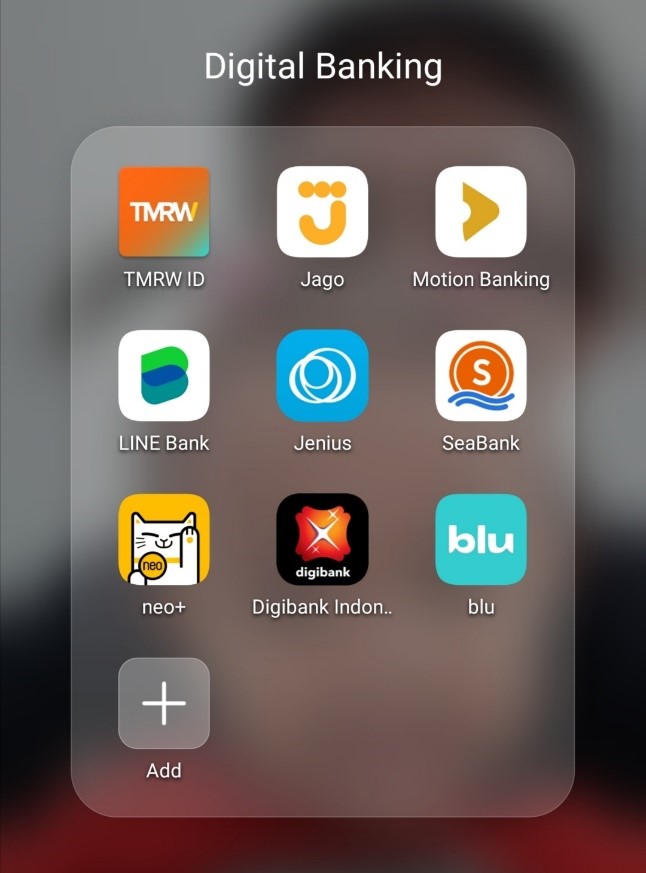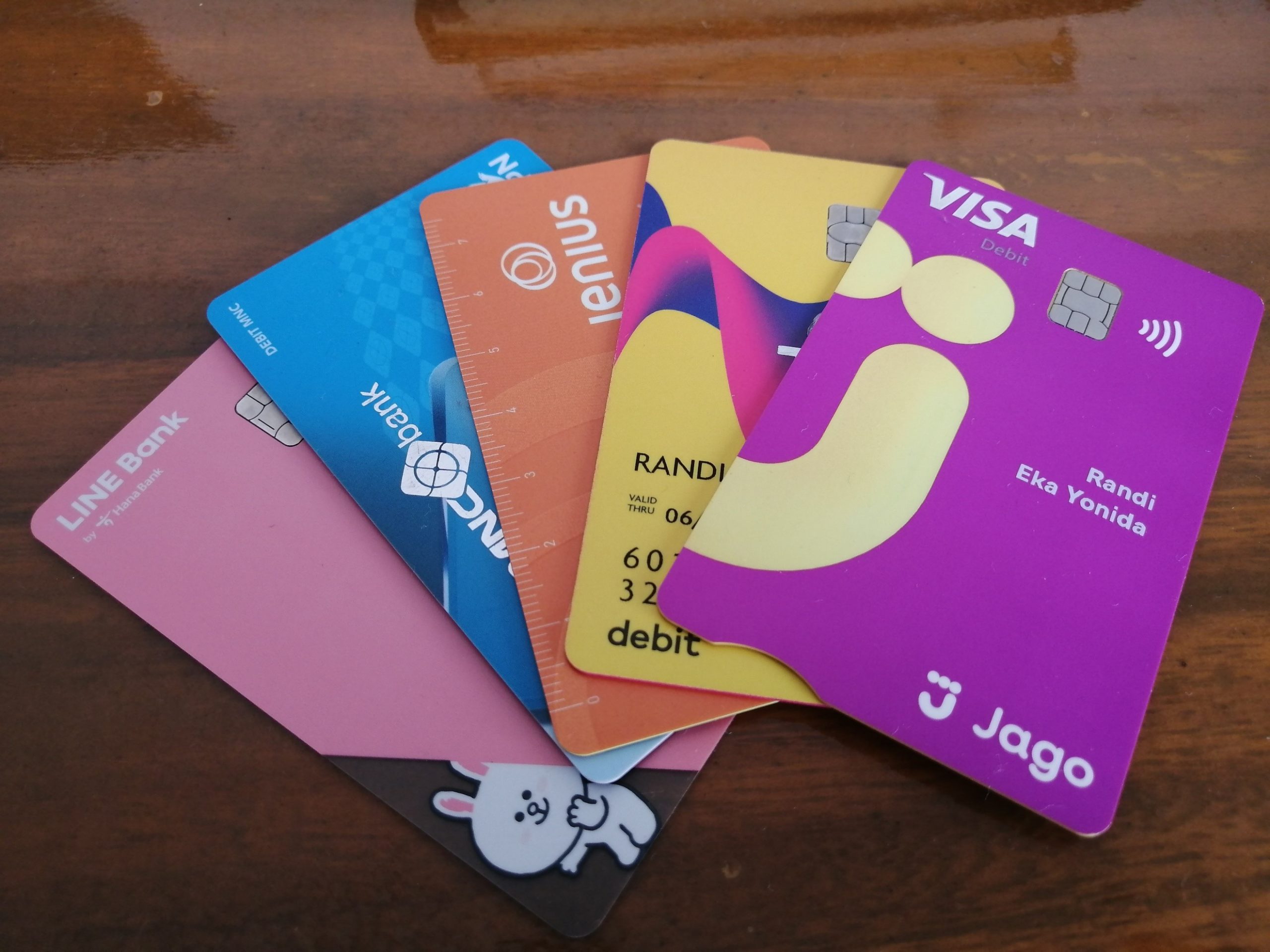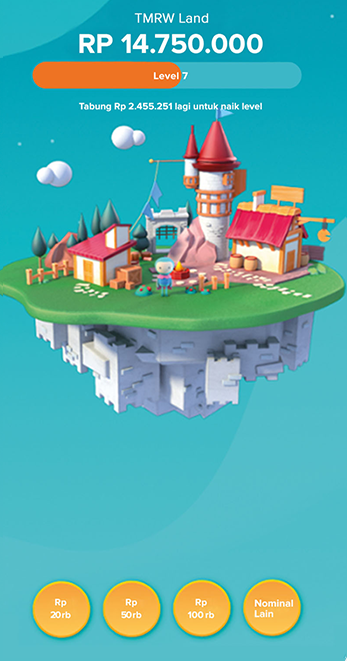Digital Bank Remains a "Nice to Have" Alternative
DailySocial's editor tried 9 digital bank applications in Indonesia and explored its features
I am Randi (29). I currently work as a private employee and live in one of the tier-3 cities in Central Java – working full time remotely. Although living in a small district, access to public facilities such as banks and modern retail is quite easy. I live at home with my wife [housewife] and a toddler. Using the Socio-Economic Status (SES) category commonly used in the survey, my current condition is fit to “A” at the middle class level.
If you look at the financial records application that I manage with my wife, our average monthly expenses are in the range of IDR 4 million to IDR 6 million [increased by 40% after having children]. Some routine expenses are including bill payments, daily necessities, children's needs, health including child immunization, and entertainment. Beyond that, there are always sudden or urgent needs issued every month with an indeterminate amount.
In managing financial flows, we have several bank accounts for specific purposes. Permata Bank is my office payroll, Bank Mandiri used as savings, and Bank BRI is to pay various routine bills. These bank options have each fundamental reason. First, the office mandatory; even though the nearest Permata Bank branch is in the next town which is about 45 minutes away by car. The Mandiri account used for savings is actually my wife's former payroll account when she used to work.
Meanwhile, BRI account is used due to the nearest branch office, across my house along with an ATM. Therefore, it is quite easy if you have to withdraw cash. That's important, because in order to truly become a cashless society here is still challenging. I remember clearly a few weeks ago, the batagor shop near my house had attached a LinkAja sticker; but when I asked to pay with non-cash option, the merchant refused. The same goes with shopping at department stores in the city, the EDC machine sometimes doesn't work, forcing me to withdraw cash at the nearest ATM.
Apart from banks, I also use several e-money services. Currently, I actively using OVO, LinkAja, and ShopeePay. Mostly used for transactions in e-commerce and ride-hailing applications. I use a premium financial bookkeeping app on my phone.
Introducing digital bank
This year, digital banks are getting more popular each day. Even though I know services such as Jenius or Digibank have been available in previous years, however, I was not intrigued to try at that time, it was also directly offered by salesmen at airports and shopping centers.
In the last few months, I have been interested in exploring the latest digital banking applications.
For me, the definition of a digital bank is quite simple. It is completely digital without having to be bothered with complicated procedures at branch offices, especially in terms of opening an account and the administrative process that follows.
In the last three months, I have installed and tried at least 9 digital bank applications on my smartphone, from TMRW ID, Jago, Motion Banking, LINE Bank, Jenius, SeaBank, neo+, Digibank, and blu.
 Screenshot of the list of digital bank applications installed on the phone
Screenshot of the list of digital bank applications installed on the phone
Apart from Digibank and neo+, I had experienced quite easy registration process. I also received debit cards for all five banks, apart from blu and SeaBank which don't offer physical card facilities.
For Digibank, the verification process should be done through a biometric service on a smartphone, however, either my device that doesn't support it or other factors, which require me to do manual verification through an agent. The closest one is in Yogyakarta, at a shopping center or branch office – apart from having to travel 1.5 hours, I couldn't make it due to the pandemic restriction.
For neo+, i have to wait in line, and it's a long one. I registered on June 16, 2021 and my queue number is 83,971. After a few weeks, I got a call from the bank to make an appointment to verify via phone the next day. Unfortunately, the phone rang when I was in the bathroom. I have to wait for a new queue number – until now I haven't gotten another call for verification.
Digital bank experience
The registration process is relatively similar with all applications. We have to fill some personal data on the form, taking selfies with ID card, and uploading other supporting documents [NPWP]. Furthermore, the verification processwas done by video call through the application. In some banks, users have to wait in long queues to verify. Even from my experience, there were times when someone had to repeat 2-3 times with different agents, because their ID cards were not visible during the verification process.
In addition, in the registration process, users will be presented some options in the account: for saving, investing, credit, or others. In this experiment, I chose investment for all apps.
 Debit card from several digital bank accounts
Debit card from several digital bank accounts
As the bank account has been created, some banks also provide the debit card option. In Jenius the minimum balance is Rp500 thousand in order to obtain a VISA Debit – although when the request completed, the money can be spent (it doesn't have to be deposited). While other banks didn't require such thing.
Regarding the card variant, I got VISA labeled debit card for Jago bank, LINE Bank, and Jenius, while TMRW and Motion Bank used the GPN logo. As I calculated the time from successfully verified to the debit card delivery process is relatively fast – LINE Bank takes the longest under the pretext of a busy card printing line.
| Application | Registration | Verification | Delivery |
| Blu | Easy | Relatively fast | Card is unavailable |
| Jago | Easy | Relatively fast | 1-2 weeks |
| Jenius | Easy | Medium queue (require scheduling) | 1-2 weeks (after top-up) |
| LINE Bank | Easy | Medium queue | Lebih dari 4 minggu |
| Motion Banking | Easy | Relatively fast | 1-2 weeks |
| TMRW ID | Easy | Relatively fast | 1-2 weeks |
| SeaBank | Easy | Relatively fast | Card is unavilable |
| Digibank | Easy | Long queue (require scheduling or manual verification) | Registration failed |
| Neo+ | Easy | Long queue (require scheduling) | Registration failed |
In my observation, digital banking really provides a new experience to have a bank account--compared to the process I previously went through when creating an account at a conventional bank.
Regarding the user interface and user experience, it has been relatively easy for me. It's typical for today's applications. I tend to be able to adapt immediately to existing features without having to fumble or find out separately through search engines. However, regarding performance, some applications still require improvement. I experienced forced close several times and it was difficult to get into the dashboard. For example, what happened with Bank Jago this morning (9/30).
Impressive yet nonessential features
In general note, each application has basic services such as savings, top-up features to e-money, and transfers. In my experience using each application, there are some impressive features, as follows:
| Application | Impressive features |
| Blu (version 1.8.0) |
|
| Jago (version 5.7.0) |
|
| Jenius (version 3.1.0) |
|
| LINE Bank (version 1.1.5) |
|
| Motion Banking (version 2.1.3) |
|
| TMRW IDE (version 4.1) |
|
| SeaBank (version 2.7.0) |
|
By selecting the “investment” option while registering, some services offer a deposit feature. Personally I am not interested in using this instrument as investment option – either for the short or long term. My current financial condition forces me to be more conservative in investing. However, I'm starting to consider stock and mutual fund instruments as suggested by my colleagues.
This feature has actually available on Bank Jago through its integration with Bibit and will soon be available on Jenius. However, it feels less comprehensive compared to creating a direct investment application. Therefore, I'm still comfortable with a separate application regarding this.
In terms of features like bluGether, pocket Jago, or Save it on Jenius, it's actually interesting for me with partner to manage our financial. However, I currently feel one account with shared access is still sufficient, instead of having to register new accounts. The effort to transfer balances to the existing digital bank services are still considered "a lot" compared to its benefits, it's not necessary for us right now.
As my wife and I discussed about migration, she also prefer to stick with the current application. There are two reasons, she only has single source of income from me and she is reluctant to create a new bank account – even though it is fully digital and will eventually gain access to a jointly managed savings account.
 City of TMRW feature
City of TMRW feature
The unique feature that is quite impressive is the City of TMRW. We are encouraged to save regularly every day, starting from a nominal value of IDR 20,000. Every time we increase the balance, the level of the virtual city displayed will get better. The gamification animation is also very interesting. I thought that later something like this would be fun to use for my children, while teaching them about regular savings.
After exploring and trying some of these features, I came to the conclusion that currently the urgency is still at the “nice to have” level, It is not yet urgent and compelled to replace the previous service. Moreover, the mobile banking application that I currently use on a daily basis is also continuously being developed and actually very easy. For example, through the PermataMobileX application, I can withdraw cash from the nearest Indomaret – it is quite helpful in the absence of a bank branch in my district.
What to expect from financial app?
The financial management that my small family and I use still requires several applications: mobile banking, financial records, e-money, and investments. Therefore, the process is still separate.
The pain points often encountered are sometimes nominal in notes are not the same as those in other applications; and require a separate top-up when you want to use e-money for example for shopping. Every month, I also have to make separate transfers to the account used for savings and transactions.
Living in a tier-3 city also forces me to keep my debit card for cash withdrawal to be used at various EDC machines and ATM Bersama. The blu feature might be interesting as it can withdraw cash through the application, unfortunately, BCA ATMs is still very limited in here -- the closest one is require travel for 12 km.
Actually, if you look at the existing digital bank vision, they are trying to accommodate the pain points that I experience, adapting to the lifestyle of today's young people, for example the pocket feature to separate the budget or integration into consumer services, therefore, it's no longer necessary to top-up e-money. It's probably because it's still in the early stages, the user experience is not enough to ensure me to change direction, switching from conventional banks.
However, it is possible, when the integration is wider and the performance is more reliable, the "nice to have" level will change to "mandatory".
I imagine, for my younger siblings who are still in college and starting to work (first jobber), this digital bank option could be interesting opportunity – especially when they are yet to have a personal account. When it is configurated for financial management from the beginning, these banks offer attractive capabilities with modern designs, and I don't hesitate to suggest one of the applications I have tried to my colleagues.
–Original article is in Indonesian, translated by Kristin Siagian
Sign up for our
newsletter
 Premium
Premium
